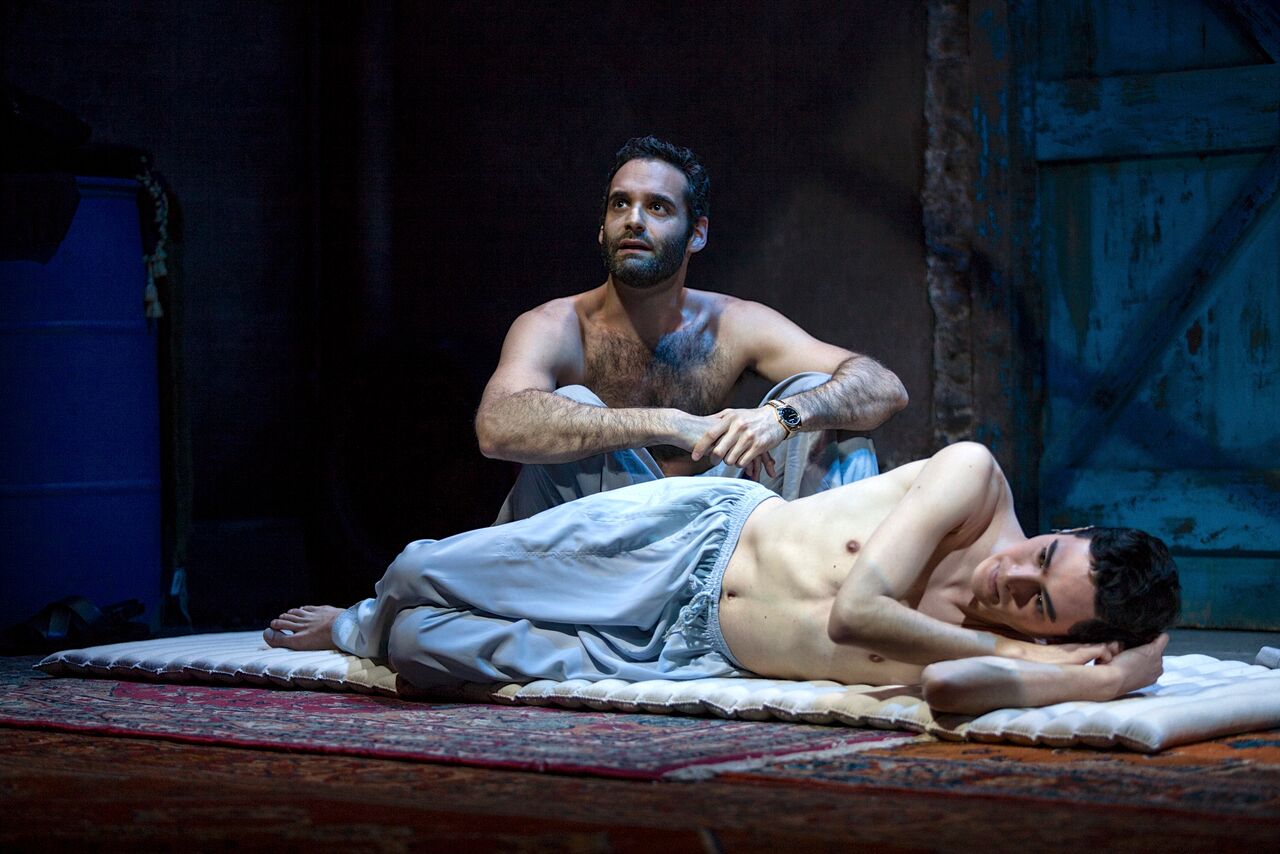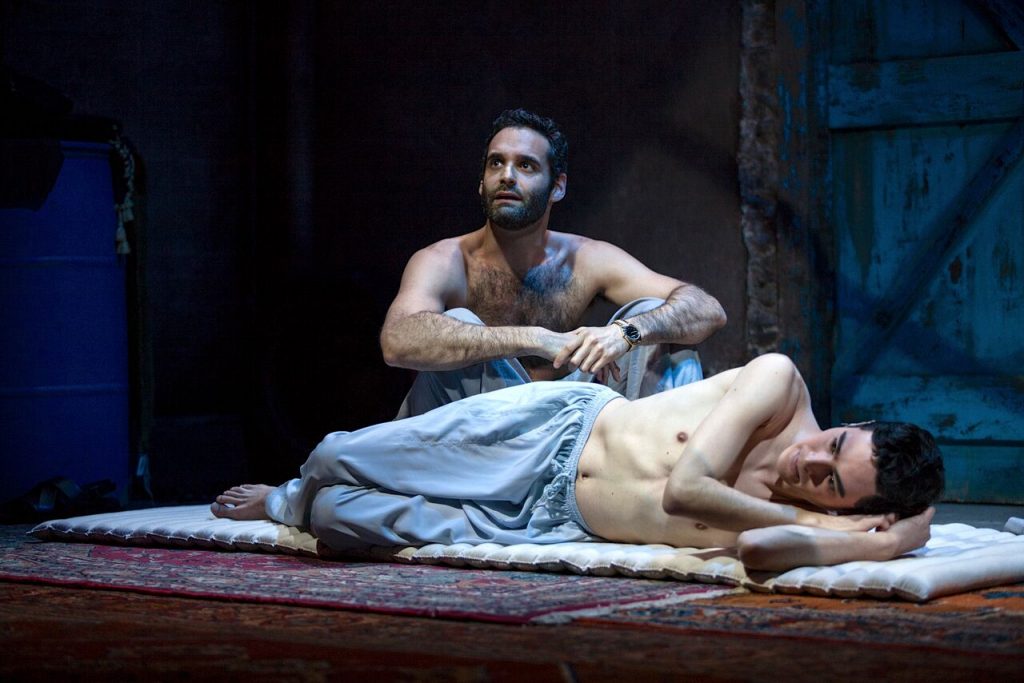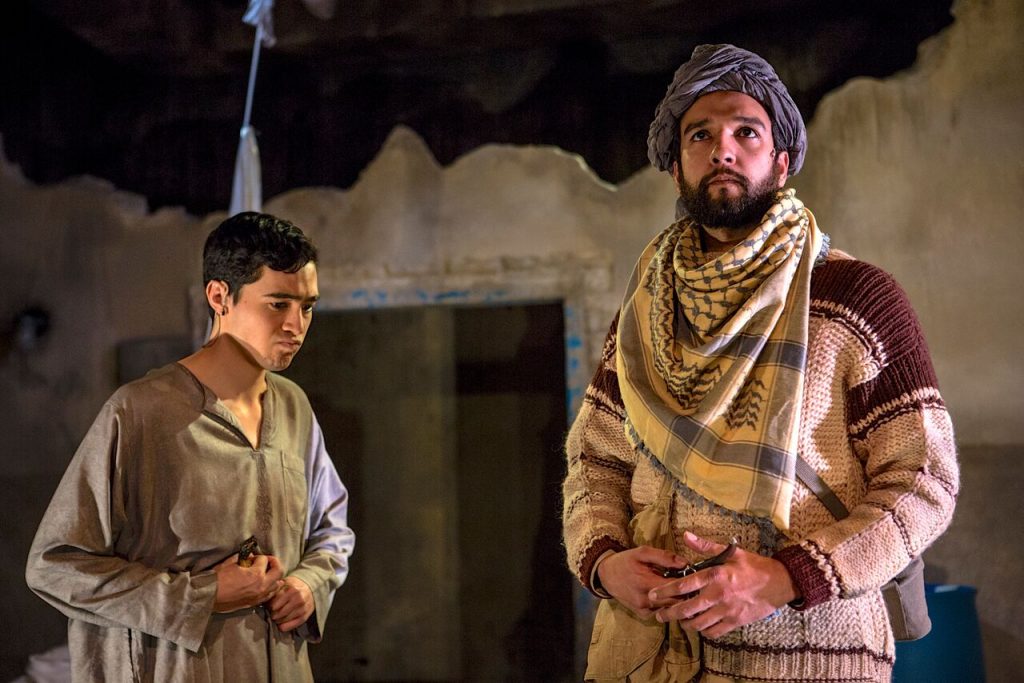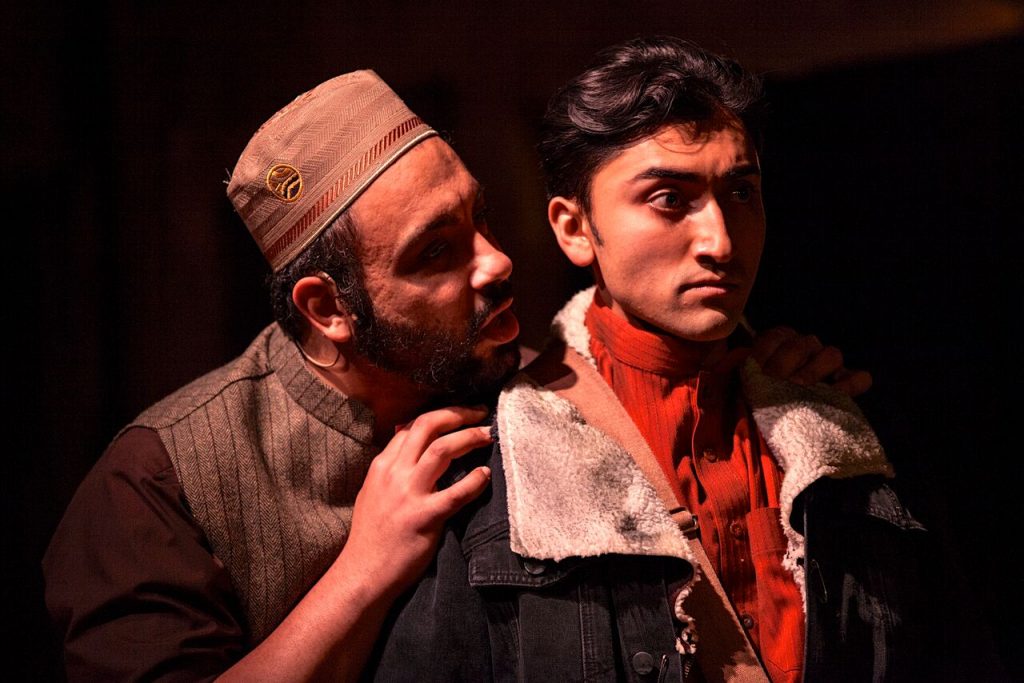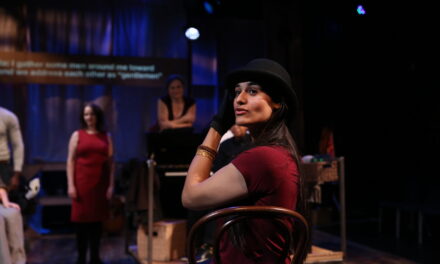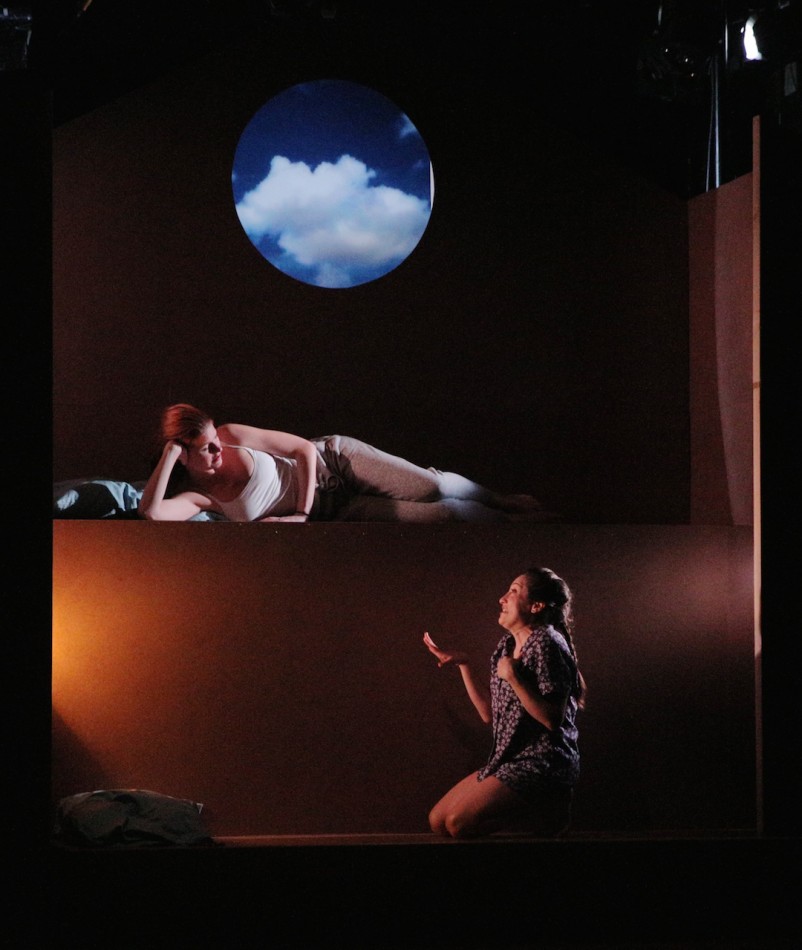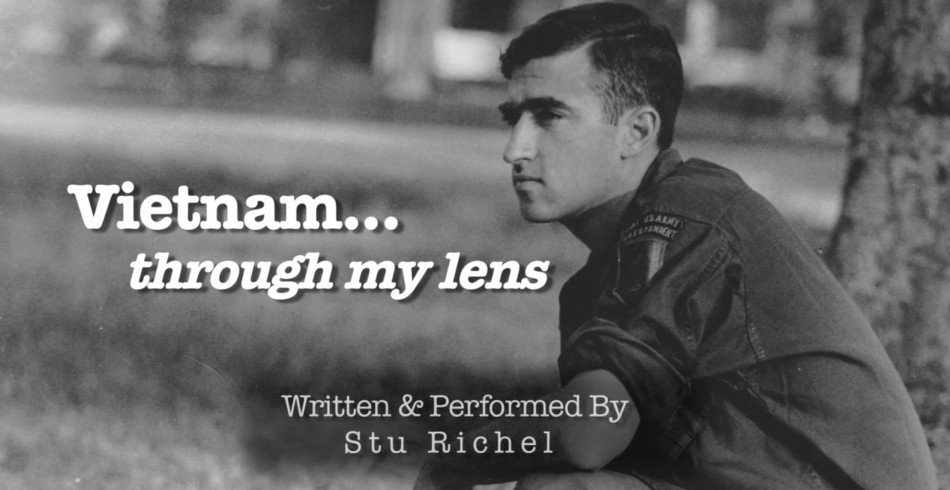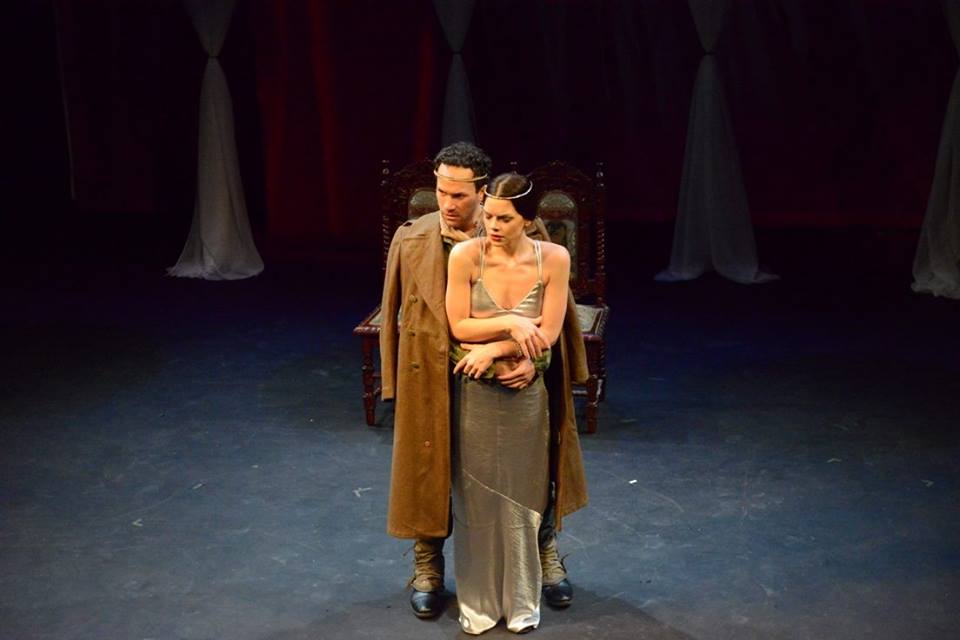By Sandi Durell
Exposing a tradition and its rituals can be enlightening and horrifying. Such is bacha bazi – an underground illegal practice in the Muslim world condemned by the Quran, especially prevalent in Afghanistan, where wealthy men buy young pretty boys from poor parents and train them to dance, dressing them in colorful female garb and makeup, and abuse them sexually. Such is the story of the musical, The Boy Who Danced on Air, at the Abingdon Theatre, with music by Tim Rosser and book and lyrics by Charlie Sohne, winners of the 2017 Jonathan Larson and Mary Rogers/Lorenz Hart awards. Not your usual fodder for a musical!
With the use of a sweetly singing narrator (Devin Kolluri), the storytelling unfolds often times in too much detail as the production opens behind a scrim of shadowing, as men from Kabul throw money at and fight over a good looking dancing boy, a very seductive moving, pop voiced Troy Iwata, to A Song He Never Chose – that repeats throughout as a mantra of the horrors. His master is Jahandar (wonderful chosen Jonathan Raviv – recently The Lightening Thief-Percy Jackson Musical and The Band’s Visit), always emphasizing the need to keep with tradition as sung to his cousin Zemar (Osh Ghanimah – who turns out to be the comic relief) in the song Kabul.
According to Jahandar, ‘they dance and obey’ and when Paiman (Iwata) oversteps his bounds he is thrashed, beaten and brutalized. And when he begins to grow hair on his young boyish face, it is time for him to be cast out, a deep trauma that the fearful Paiman cannot understand because of the extreme bond between them – Jahandar bragging how lucky the boy is to have a master who has found him a wife rather than being kicked out on the streets to fend for himself. But all that Paiman dreams of is to go to the Big City where he can be a dancer.
Meanwhile, Paiman has forged a friendship with another dancing boy Feda (Nikhil Saboo), not without its own numerous complications, as they secretly meet, Feda providing the courage that Paiman lacks in planning their escape as their relationship takes on new meaning and they fall in love.
The sub text of the story is political anti-American regarding the building of a power plant never brought on line resulting in a plan of exposure by Jahandar to the media scheduled to visit Kabul from the U.S. The plan backfires when Paiman and Feda sabotage it, resulting in unbearable grief to Paiman who must find a way to go on.
In this deeply moving portrayal, exquisitely told through song, we are witness to intolerable crimes and brutality against these very young boys, crimes that question the very nature of ‘tradition’ where men are seemingly nothing more than pedophiles, or hide their homosexuality (which is outlawed in Islam) under this guise.
This is not an easy production in which to be an audience and the fact that it is somewhat lightened by melodic music and good storytelling helps. But if you are squeamish in the face of bodily harm, beware!
Tony Speciale directs this cast with extraordinary understanding and tantalizing aplomb. The telling dance sequences are choreographed by Nejla Yatkin; scenic design is by Christopher Swader and Justin Swader, with costumes by Andrea Lauer and subtle lighting by Wen-Ling Liao.
The Boy Who Danced on Air is based on a PBS documentary The Dancing Boys of Afghanistan, the writers drawn to the love story and struggles in a world denying these boys freedom to live their lives and embedding the complexities of a culture of rituals difficult to process in more civilized societies.
Photos: Maria Baranova
Abingdon Theatre, 312 West 36 Street thru June 11. Run time: 2 hrs, 30 minutes with intermission. www.abingdontheatre.org


